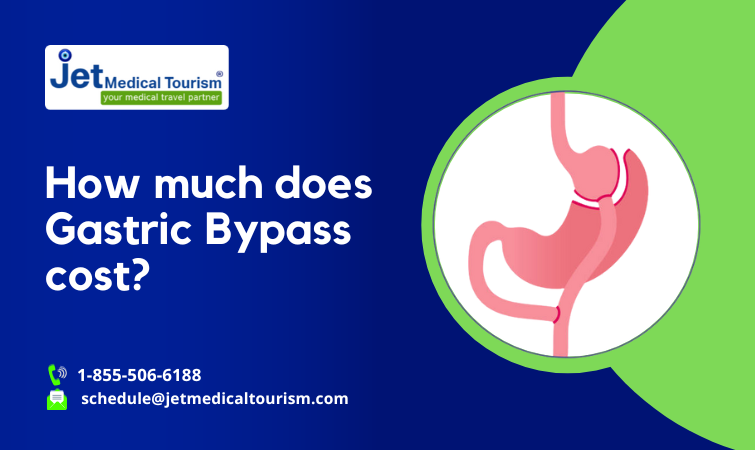Does Medicaid Cover Weight Loss Surgery
Medicaid coverage for weight loss surgery, such as gastric bypass, laparoscopic banding, or sleeve gastrectomy, may be available depending on the state and specific circumstances. Medicaid programs are administered by individual states, so coverage can vary. However, many Medicaid programs do cover weight loss surgery if certain criteria are met.
Applicants usually need a specific BMI range and documented health issues like diabetes, high blood pressure, or sleep apnea. The decision to cover weight loss surgery is often based on medical necessity and whether other weight loss methods have been unsuccessful.
If you or someone you know is considering weight loss surgery and is covered by Medicaid, it’s important to consult with a medical provider and review the specific coverage criteria outlined by your state’s Medicaid program. This will help determine whether you meet the requirements for coverage and guide you through the necessary steps to access this procedure.
How to determine if Medicaid covers weight loss surgery in your state
To find out if Medicaid covers weight loss surgery, individuals can use various methods. Ways to find out include checking the state’s Medicaid website, contacting the state Medicaid office, and consulting medical providers. These strategies help individuals navigate Medicaid’s process and make informed decisions based on the program’s specific guidelines.
1. Visit the official Medicaid website
Go to the official website of your state’s Medicaid program. The website will provide detailed information about the services covered, including any specific guidelines related to weight loss surgery.
2. Contact the state Medicaid office
You can search for and contact your state’s Medicaid office directly by phone or email. The representatives can provide you with information about the coverage of weight loss surgery and the specific eligibility criteria in your state.
3. Speak with a medical provider
Consult a medical provider, such as a primary care physician or a bariatric surgeon, who can provide information about Medicaid coverage for weight loss surgery. They can guide you through the process and help you understand the specific requirements and documentation needed for approval.
4. Review Medicaid policy documents
Look for policy documents or handbooks related to Medicaid coverage on the state’s Medicaid website. These documents often outline the services covered, eligibility criteria, and any restrictions related to weight loss surgery.
5. Check for updates
Medicaid policies and coverage guidelines can change over time.
Stay updated on any recent changes to your state’s weight loss surgery coverage for the most current information.
By following these steps and gathering official information, you can determine Medicaid’s coverage for weight loss surgery in your state and understand the specific eligibility criteria.
Medicaid Eligibility Criteria and Qualifications
Medicaid coverage for weight loss surgery is typically contingent on meeting certain eligibility criteria and qualifications. While these may vary depending on the state, there are general guidelines that are often considered. Here are some common eligibility criteria and qualifications for Medicaid coverage of weight loss surgery:
- Body Mass Index (BMI): Medicaid may require a minimum BMI for coverage, often in the range of 35 to 40 or higher. Some states might have slightly different BMI requirements, so it’s important to check the specific guidelines in your state.
- Documented Failed Attempts at Weight Loss: Medicaid might need proof of past unsuccessful traditional weight loss attempts, like diet changes and exercise programs.
- Obesity Related Health Conditions: Applicants may have to show proof of obesity related health problems, like type 2 diabetes or high blood pressure, to meet the requirements.
- Age Restrictions: Some states may have age restrictions for weight loss surgery coverage. They may require patients to be within a certain age range to be eligible for coverage.
- Psychological Evaluation: Medicaid might mandate a psychological evaluation to assess a candidate’s readiness for the procedure and to ensure they understand the lifestyle changes necessary after surgery.
- Medical Necessity: A health care professional decides based on health condition and failed weight loss attempts.
Consult your state’s Medicaid guidelines and work closely with your health care provider to determine if you meet the criteria for weight loss surgery coverage. They can guide you through the process and requirements.
What Weight Loss Surgery Does Medicaid Cover?
Medicaid coverage for weight loss surgery varies by state and specific circumstances. While coverage may differ, Medicaid often covers several types of weight loss surgeries that are deemed medically necessary. Some common weight loss surgeries that Medicaid may cover include:
1. Gastric bypass surgery
Gastric bypass procedure reduces the size of the stomach and reroutes the digestive system to limit the stomach’s food capacity and the body’s nutrient absorption ability.
2. Gastric sleeve surgery
Gastric sleeve procedure removes a large portion of the stomach, creating a smaller, sleeve-shaped stomach that limits food intake and aids in weight loss.
3. Laparoscopic adjustable gastric banding
Gastric banding places a band around the upper part of the stomach, creating a smaller pouch that can hold only a small amount of food, resulting in reduced food intake and weight loss.
Medicaid coverage for weight loss surgery depends on factors like the patient’s health, BMI, and state criteria. Consult a healthcare provider or the state’s Medicaid office to understand coverage options.
Paying for Weight Loss Surgery Without Medicaid Coverage
Paying for weight loss surgery without Medicaid coverage can be a significant financial challenge, but there are several alternative options you can consider. Here are some strategies that can help you finance the procedure:
Benefits of Medical Tourism
Explore medical tourism by traveling to a place where gastric sleeve surgery costs less than in your home country. For instance, Jet Medical Tourism offers secure and cost-effective weight loss surgery options in Tijuana and Nuevo Laredo, Mexico, at a fraction of the cost in the United States and Canada.
Self-payment
If you can afford it, you can self-fund the weight loss surgery expenses either domestically or internationally. Obtain cost estimates from various providers and select a reliable, experienced surgeon.
Private health insurance
If you have private health insurance, check if your plan covers weight loss surgery. Some private insurers offer coverage for specific types of bariatric procedures, so it’s important to review your policy’s terms and conditions.
Financing options
Many health care providers and facilities offer medical financing options or payment plans for patients undergoing weight loss surgery. You can inquire about installment plans or medical loans to manage the costs over time.
Personal savings
You can use personal savings or consider setting up a dedicated savings account to gradually accumulate funds for the surgery.
Health savings account (HSA) or flexible spending account (FSA)
If you have an HSA or FSA, you can use these funds to pay for eligible medical expenses, including weight loss surgery.
Medical credit cards
Some financial institutions offer medical credit cards specifically for covering medical expenses. These cards often come with promotional financing options and can be used to pay for the surgery.
Crowdfunding
Consider setting up a crowdfunding campaign on platforms dedicated to healthcare expenses. Share your story and treatment goals to seek financial support from friends, family, and the community.
Negotiating with medical providers
Some providers may offer discounted rates or flexible payment options for patients paying out of pocket. It’s worth discussing payment options directly with the health care facility or provider.
Before choosing a specific payment option, consult with the health care provider and financial advisor to assess the best approach for your financial situation. Understanding the total cost of weight loss surgery, including pre operative and post operative expenses, will help you plan and manage the financial aspects of weight loss surgery effectively.
Conclusion
Medicaid coverage for weight loss surgery depends on specific state guidelines and various qualifying factors. To explore coverage options, consult the state’s Medicaid guidelines and healthcare providers. Additionally, alternative payment options like private insurance, financing, personal savings, and medical credit cards can help cover the cost of weight loss surgery.
Medical tourism is also a viable option, with destinations such as Tijuana and Nuevo Laredo, Mexico, offering more affordable surgery options compared to the United States and Canada. Understanding the available options and consulting with both healthcare and financial professionals is essential for effective financial planning and management of weight loss surgery costs.



